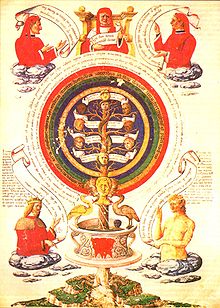Alchemy - Occult Practice or Actual Science

Over the years, finding a way to turn common metals into pure gold and working to create a magical substance, called the Philosopher’s Stone has both made and destroyed the lives of alchemists around the World. Originated in the Middle East, alchemy involves going through tricky chemical procedures to come up with chemical compounds using which even mere humans could conjure up astounding miracles and maybe, just maybe open the doors of immortality.
Alchemists were employed by princes, overlords and counts and were paid handsomely for their efforts if they could successfully deceive their employers well enough. However, if such defraud alchemists were caught, then the punishment was Death. Even though alchemy was disregarded as something with absolutely no scientific significance by the twentieth century scientists, yet modern day scientists are having a second look at it and getting astonishing results capable of changing our perception of the World. If there were a way to achieve immortality, then surely the scientists would have achieved major breakthroughs by now. Alchemy dates back to around 300 AD and alchemists still haven’t achieved the results that they aspired for. Alchemical texts are extremely hard to decode as each alchemist gives weird, almost undecipherable names to the intermediate chemical compounds that they achieve en route to the Philosopher’s Stone. Most of these are derived from ancient mythological texts as the very ‘science’ of alchemy has its roots in mythology.
Most alchemists believed that our predecessors had immense knowledge of the World and their knowledge could answer the basic questions we have about the Universe we live in. What is the Universe made of? How did the Universe come into being? They believed that answers to such questions could be found in ancient religious texts where they had been hidden in a way that only those with great minds like those of our predecessors could decipher it. Alchemy might have been a way for some scientists to try to understand the natural world better. Since alchemy didn’t speak one language, hence it was extremely difficult for alchemists, and then later on research scientists to understand alchemy as a whole. Lawrence Principe, from the John Hopkins University in the 17th century was probably one of first modern scientists to investigate alchemy. He deciphered some parts of alchemical texts and carried on an experiment of his own where he mixed Mercury and Gold in a specially prepared buttery mixture and on placing it overnight in a heated sand bath, he was completely dumbfounded to find what resembled a ‘Glittering Golden Tree’, exactly as predicted by the texts.
Since then, scientists have been astonished by how correct some of those predictions turned out to be. To some, alchemy was probably a gateway to modern Chemistry and maybe, alchemists have been largely misunderstood throughout the course of history. Probably one of the most figures who had their faith in alchemy was one, Sir Isaac Newton, who dedicated more time to Alchemy and Theology than he did to Physics and Mathematics. When his personal notes were made public in 1936, it came as a shock to many that someone as radical as Newton would resort to something as tabooed and discarded as Alchemy. But in Newton’s time, many members of the Royal Society of England did actually practice Alchemy, albeit in secret.
A hotly debated topic, and yet still under the wraps is that Can Alchemy actually be aid Modern Chemistry today? Most scientists would disagree but there is a strong minority that believes that we can take the help of Alchemy to discover new compounds and alloys. One such alloy called ‘The Net’ is a purple-ish color with a lustrous flaky surface gets its name from an ancient Roman myth where when the god Vulcan catches his wife, Venus in the bed with Mars, then in his outrage he hangs the two from the ceiling for everyone to see in a fine shiny metal net, called simply ‘The Net’. Now, in the language of Alchemy Venus, Mars and Vulcan mean Copper, Iron and Fire and by interpreting and deciphering this myth with the language of alchemy, modern scientists have successfully fabricated the alloy ‘The Net’, just like alchemists had decades ago. Discoveries like this have thrown the debate wide open that is it right to brand alchemy as an occult practice when it has the capability to contribute significantly to modern science. It might be highly unorthodox but frankly, that can’t be reason enough for the large scale outrage in the scientific community on Alchemy as a Science. Instead, there are other reasons. Alchemy promises fantastical results like eternal youth or unlimited wealth. Such chemical breakthroughs were never intended to happen and are basically just the intermediates to vast chemical reactions that in the end should produce something like the Philosopher’s Stone. That alchemy never achieved its basic aims questions its affectability. Also alchemy is an immensely tricky process and even borders on impracticality. The time expended in going through the long and rigorous processes of Alchemy is certainly way too much considering the uncertainty of the results. Alchemy as a whole may not be required but this is certainly an intriguing question that what was the level of expertise of our predecessors in Science to have actually predicted such accurate results?
For someone like Newton, religion and science were inseparable. Today, we would disregard anyone with identical views. But still there are so many things about our World, our own existence and history that it wouldn’t be ideal to rule out any single theory that might possibly explain the working of the clockwork of our Universe.
Some great man once said, “We learn from history that we learn nothing from history.”
Maybe it’s time we look back at our history; there might be so many things just waiting to be learnt.